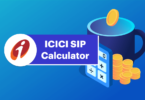Account Aggregators have effectively proven to be the bedrock in financial management and account aggregation. Delivering and/or having prompt, simple entry to a single perspective that shows and analyses all of your business statements is quickly becoming THE product in the market.
Account aggregation may seem like a complicated item. But in reality, it’s anything but that. Here’s a simple way to visualize this latest innovation. Right now, your digital data is spread everywhere. For example, your stockbroker has data about your trades. Your mutual fund company has information about your mutual fund holdings. Your bank has data about your savings and fixed deposit. Your insurance company has a tab on your policies and annual premium payments and they’re all locked up in different places. You can’t access them all at once.
More importantly, you can’t let anybody else access this data either. If you want to calculate your net worth, you may need information from all of these sources. And yet, as of right now, you can’t have an app to aggregate all of this data. However, behind the scenes, many people have been at work trying to fix this very problem. They’ve been trying to build a solution that can offer you a single touchpoint to access all of your financial data from one place.
And they’re calling it, account aggregation. The companies being allowed to aggregate this information are called account aggregators.
They bring together data from multiple agencies like banks, insurance companies, etc, and then connect them to other apps or services that can use this information to make life easier for consumers. Obviously, there’s a consent layer here i.e. consumers have to offer apps access to all this sensitive data. But once they do, they can do it using a single touchpoint.
And many in the industry have already hailed this as a game-changer.
Think about all the use cases that account aggregation could potentially come to facilitate. For instance, lending. Right now, if you want to go apply for a personal loan, banks and financial institutions will have a tough time figuring out your creditworthiness. Sometimes they use crude data from your passbook, messages, income statements, etc. But in all honesty, this is too cumbersome and often incomplete. More importantly, these companies have to spend sizable sums of money simply vetting your application. They have to hire additional manpower for this reason alone.
It’s almost impossible to get hold of this information in real-time. However, with account aggregation, this is possible. If the user consents, online loan apps could immediately access your transaction data at a granular level and collate information from multiple accounts in an instance. Once they’re through with this, they can evaluate your creditworthiness without spending too much time or money. And you could get your application processed much faster.
The only concern here is this — “Why will banks and mutual fund companies willingly share customer information with account aggregators? What if they say no? Won’t the whole idea fall flat on its face?”
Well, it could.
It would. But the whole idea is premised on the principle of reciprocity. You can only use data from an account aggregator if you are willing to share information you have. So let’s suppose if a bank is unwilling to divulge information about their customers, then the bank can’t use data from outside. So the hope is that this principle of reciprocity will induce people and institutions into sharing information for the larger good.
Okay, but what are other use cases that are relevant from a consumer point of view? Why should regular folks be excited about Account Aggregation?
Well, think of the current nomination system. You’ve probably done it already. You have a bunch of assets spread across multiple domains but you have to nominate an individual who can access the proceeds in your absence. Each time you have to nominate individuals you have to go through a taxing documentation process to settle claims.
This point is further driven home by the fact that there are still lakhs of crores worth of unclaimed assets simply because owing to issues with the nomination process. However, with account aggregation, you can now have a unified nominations registry i.e. you could collate declared nominees from multiple silos and update this information in a single place. As the people working on Sahamati (a non-profit organization facilitating the account aggregation framework) write —
“It will help retail investors declare nominees for their assets quickly and overcome the discrete nomination process followed by individual institutions. It will facilitate faster claims and settlements, which in turn will reduce unclaimed assets. It will also accelerate the claims and settlements process leading to a decrease in unclaimed assets. UNR with Account Aggregator provides multiple benefits, and it will bring us one step closer towards financial inclusion.”
Another use case is wealth management
Right now, most financial planners use their intuitive assessment to come up with a robust financial plan for you. However, the truth is — “Most of these plans aren’t premised on past behavior or your existing track record.” They are quite rudimentary in their assessment because they don’t have access to granular information about your past financial history. However, if they do get access to this information — “past trading information, mutual fund holdings, liabilities”, they could potentially draw up a much more robust plan by looking at how you’ve managed your finances so far.
And finally, think about insurance planning. In the absence of a central silo, it’s impossible for insurance advisors to adequately recommend optimal policies. They often rely on customers to produce the physical copies of their policy document to make an appropriate assessment. However, with account aggregation, they could get all this information in a jiffy. And they could help you buy better insurance products.
Something that companies are doing already. Companies like Ditto. They aren’t yet using the account aggregation framework yet, but they still offer a holistic assessment of your current insurance needs before telling you what to do. And if you want to see how this works, don’t forget to book a call here.




